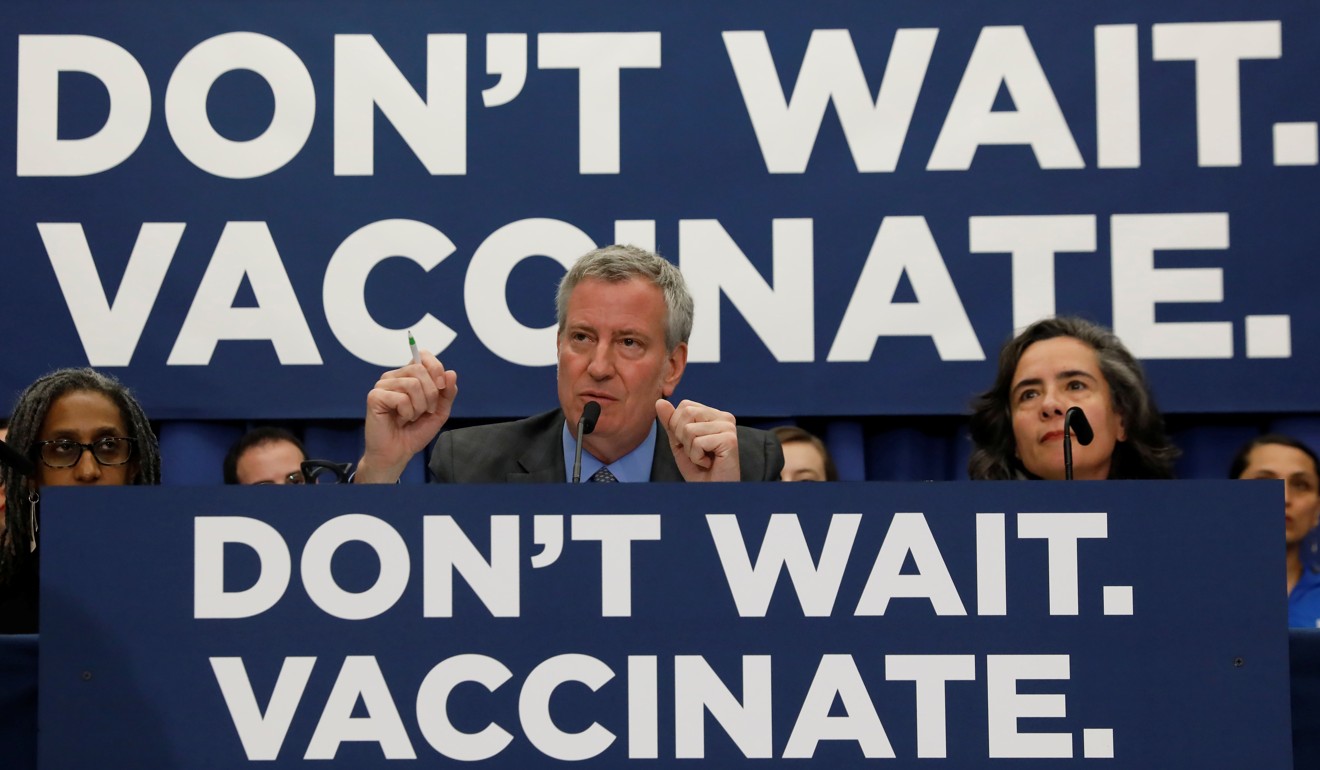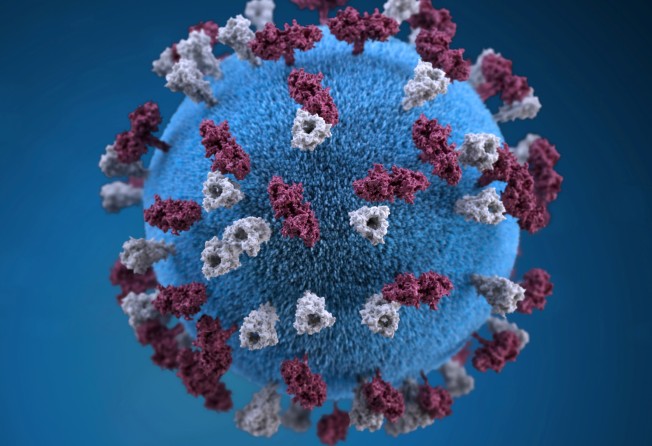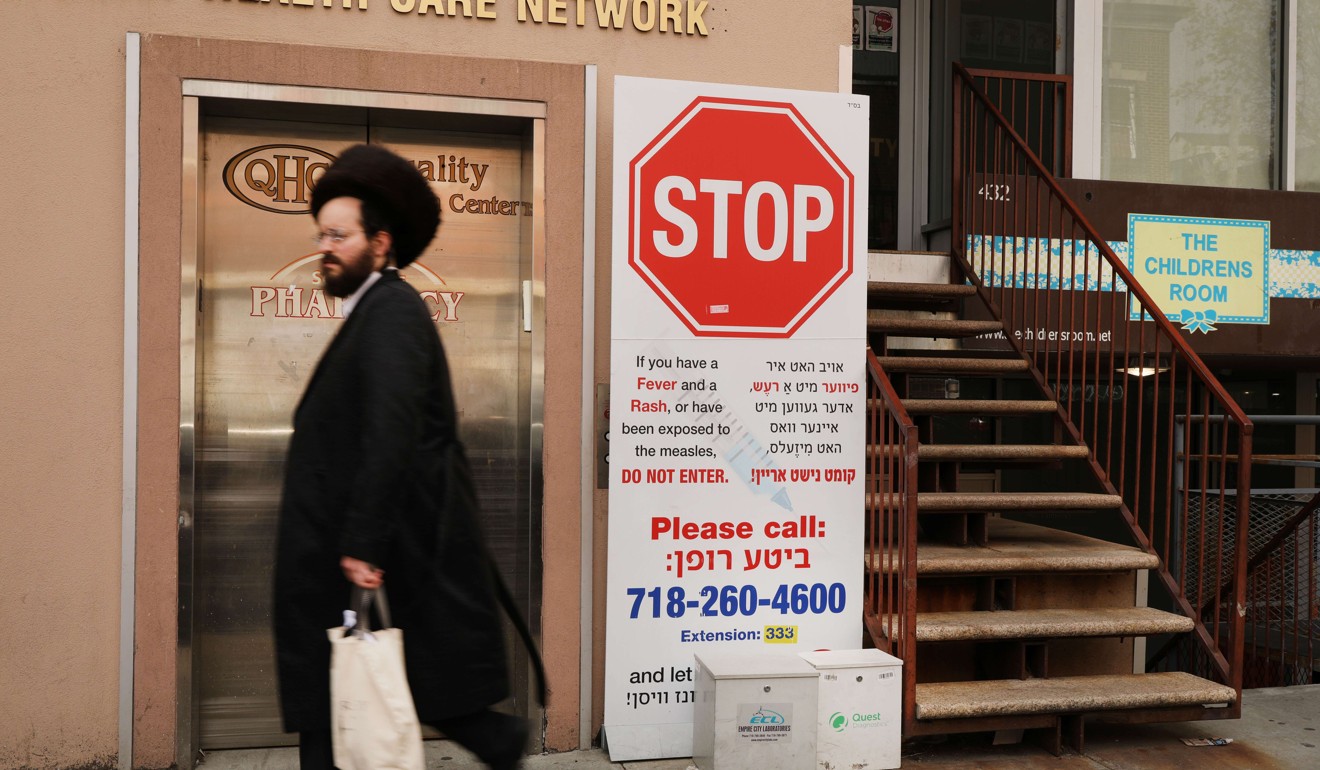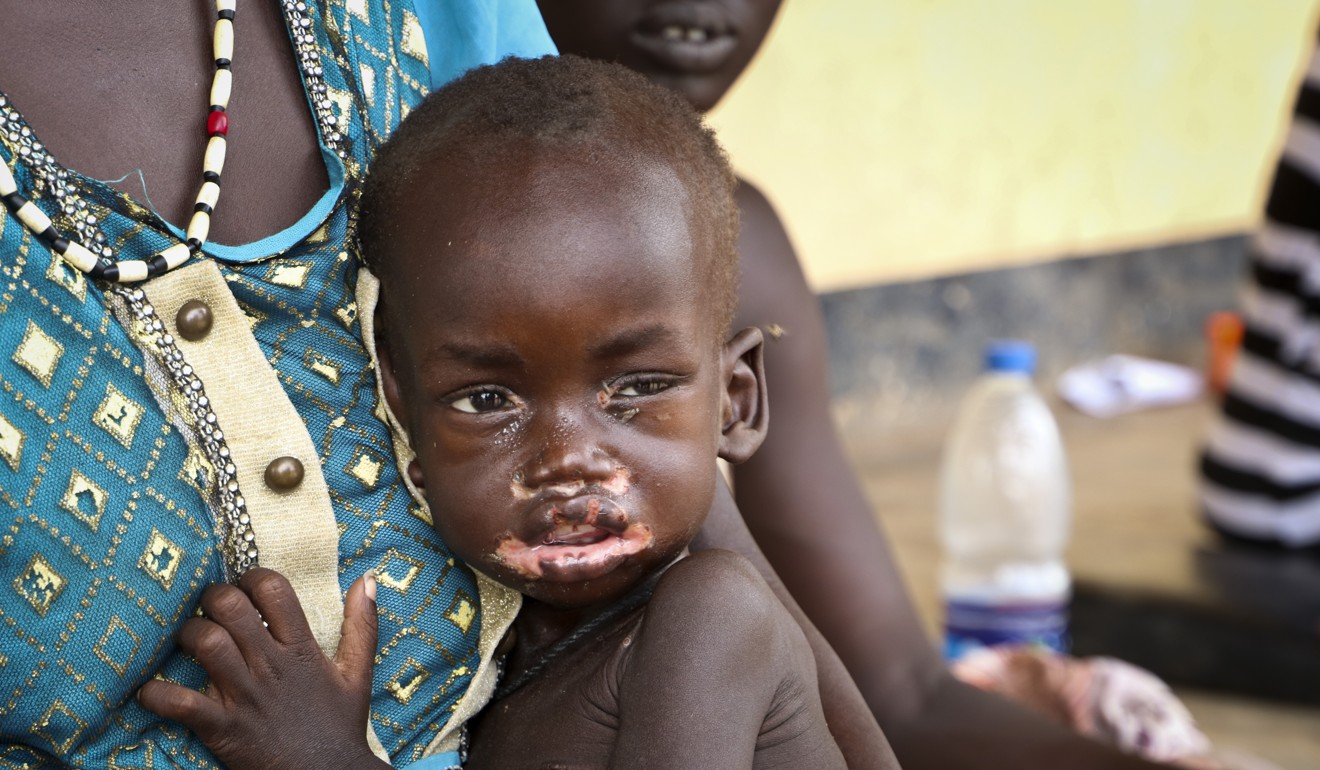
Measles outbreak: 170 million children under 10 unprotected as global anti-vax movement surges
- Measles has been on the rise globally. More than 110,000 cases were reported in the first three months of 2019, according to the WHO
- The anti-vax phenomenon has been fuelled by medically baseless claims spread on social media

Nearly 170 million children in the world under the age of 10, including half a million in the UK and 2.5 million in the US, are unprotected from measles in the face of growing outbreaks of the disease, Unicef is warning.
More than 21 million children a year are not vaccinated against one of the most infectious organisms in existence, says the UN body.
Between 2010 and 2017, an estimated 169 million children missed the first of the recommended two-dose regime.
“The ground for the global measles outbreaks we are witnessing today was laid years ago,” said Henrietta Fore, Unicef executive director.

“The measles virus will always find unvaccinated children. If we are serious about averting the spread of this dangerous but preventable disease, we need to vaccinate every child, in rich and poor countries alike.”
Measles has been on the rise globally. More than 110,000 cases were reported in the first three months of 2019, according to the World Health Organisation (WHO).
Resurgence of the once-eradicated, highly-contagious disease is linked to the growing anti-vaccine movement in richer nations, which the WHO has identified as a major global health threat.
The anti-vax phenomenon has adherents across Western countries but is particularly high profile in the US, where it has been fuelled by medically baseless claims spread on social media.
The US recorded 695 cases of measles in 2019, the most of any year since the disease was declared eliminated at the turn of the century.
“The high number of cases in 2019 is primarily the result of a few large outbreaks – one in Washington state and two large outbreaks in New York that started in late 2018,” the Centres for Disease Control and Prevention said.

In New York, an Orthodox Jewish community in Brooklyn has been hardest hit. They were infected by visitors from Israel, where an outbreak of began a year ago.
Earlier this month New York’s mayor declared a public health emergency in parts of Brooklyn, ordering all residents to be vaccinated to fight measles.
The New York county of Rockland declared a similar emergency in March.
Washington state’s Clark County has seen the outbreak concentrated among a Russian-speaking community. After a child brought the virus back from Ukraine in December it spread to 74 other people, mostly children, through schools, supermarkets and a bowling alley.
The US tops the list of high-income countries with the most children not receiving the first dose of the vaccine between 2010 and 2017, at more than 2.5 million.
It is followed by France and the UK, with more than 600,000 and 500,000 unvaccinated infants, respectively, during the same period.
In low- and middle-income countries, the situation is critical, says Unicef.

In 2017, for example, Nigeria had the highest number of children under the age of one who missed out on the first dose, at nearly 4 million. It was followed by India (2.9 million), Pakistan and Indonesia (1.2 million each), and Ethiopia (1.1 million).
Many countries have not introduced the second dose, which is given after the age of four. Twenty countries in Sub-Saharan Africa do not have it in their immunisation schedule, which means that 17 million infants are at higher risk.
Between one and three people in every 1,000 who catch measles will die, it is estimated, and there are serious complications in some who survive such as blindness, encephalitis (an infection that causes brain swelling) and pneumonia.
Dr Robin Nandy, Unicef’s chief of immunisation, said: “I’m extremely worried and everybody should be worried. I’d be very disappointed if we were not worried about it. We have had a vaccine for a number of decades now. It is inexpensive, efficacious, safe and widely available. Despite this we are seeing outbreaks all across the world.”
The Guardian and Agence France-Presse